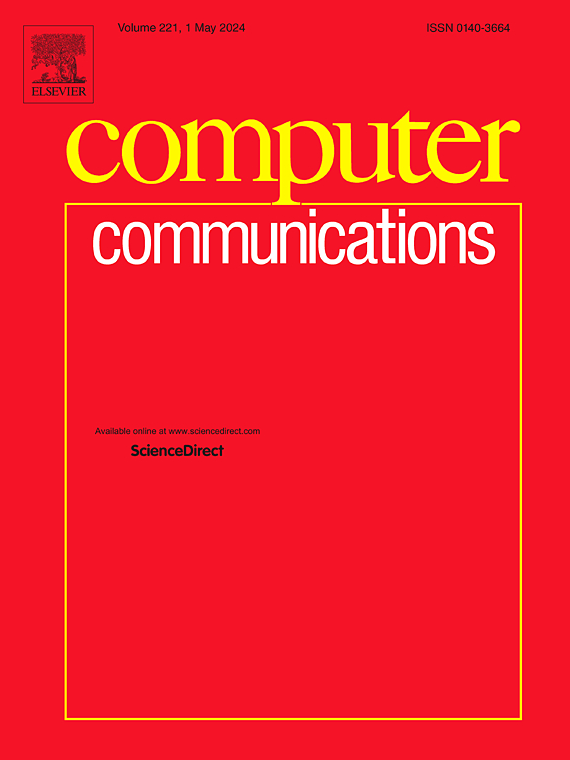SMKA: Secure multi-key aggregation with verifiable search for IoMT
IF 4.5
3区 计算机科学
Q1 COMPUTER SCIENCE, INFORMATION SYSTEMS
引用次数: 0
Abstract
The Internet of Medical Things (IoMT) aggregates numerous smart medical devices and fully employs the collected health data to enhance patients’ experiences. In IoMT, patients generate various encryption keys and receive keyword information sent by data requesters to securely share selected health data, which increases the potential risk of key leakage. Besides, the cloud server may tamper with search results. The existing schemes did not consider that patients may inadvertently disclose the keyword information of data requesters. Additionally, these schemes entail a significant cost for verifying the search results. To deal with these challenges, we innovatively propose a secure multi-key aggregation (SMKA) scheme with verifiable search for IoMT. Firstly, the SMKA scheme is built upon key-aggregate searchable encryption, utilizing an oblivious search request and blockchain technology to achieve secure key aggregation. Secondly, a dual verifiable algorithm is integrated into the scheme to provide lightweight verification for the search results. The proposed scheme can achieve access control, requester privacy, accountability, and dual verification while ensuring secure search. Furthermore, the security analysis and proof have shown the effectiveness of the proposed protocol in achieving the intended security goals. Finally, the performance analysis indicates the significant feasibility and scalability of the proposed scheme.
SMKA:对IoMT进行可验证搜索的安全多密钥聚合
医疗物联网(Internet of Medical Things, IoMT)汇聚了众多智能医疗设备,并充分利用收集到的健康数据来提升患者的体验。在IoMT中,患者生成各种加密密钥并接收数据请求者发送的关键字信息,以安全地共享选定的健康数据,这增加了密钥泄露的潜在风险。此外,云服务器可能会篡改搜索结果。现有方案没有考虑患者可能在无意中泄露数据请求者的关键字信息。此外,这些方案需要大量的成本来验证搜索结果。为了应对这些挑战,我们创新地提出了一种安全的多密钥聚合(SMKA)方案,该方案具有可验证的IoMT搜索。首先,SMKA方案建立在密钥聚合可搜索加密的基础上,利用遗忘搜索请求和区块链技术实现安全的密钥聚合。其次,将双重可验证算法集成到方案中,为搜索结果提供轻量级验证;该方案在保证安全搜索的同时,可以实现访问控制、请求者隐私、问责和双重验证。此外,安全分析和证明表明,所提出的协议在实现预期的安全目标方面是有效的。最后,性能分析表明了该方案的可行性和可扩展性。
本文章由计算机程序翻译,如有差异,请以英文原文为准。
求助全文
约1分钟内获得全文
求助全文
来源期刊

Computer Communications
工程技术-电信学
CiteScore
14.10
自引率
5.00%
发文量
397
审稿时长
66 days
期刊介绍:
Computer and Communications networks are key infrastructures of the information society with high socio-economic value as they contribute to the correct operations of many critical services (from healthcare to finance and transportation). Internet is the core of today''s computer-communication infrastructures. This has transformed the Internet, from a robust network for data transfer between computers, to a global, content-rich, communication and information system where contents are increasingly generated by the users, and distributed according to human social relations. Next-generation network technologies, architectures and protocols are therefore required to overcome the limitations of the legacy Internet and add new capabilities and services. The future Internet should be ubiquitous, secure, resilient, and closer to human communication paradigms.
Computer Communications is a peer-reviewed international journal that publishes high-quality scientific articles (both theory and practice) and survey papers covering all aspects of future computer communication networks (on all layers, except the physical layer), with a special attention to the evolution of the Internet architecture, protocols, services, and applications.
 求助内容:
求助内容: 应助结果提醒方式:
应助结果提醒方式:


